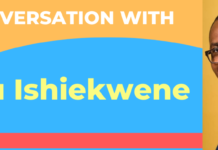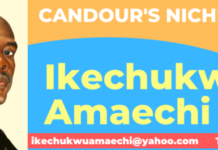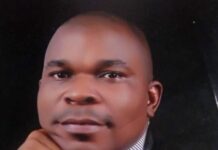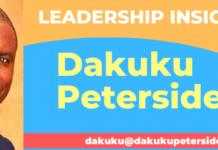Nigeria has a brand new President and Commander-in-Chief of the Armed Forces in Muhammadu Buhari.
The man who had been in the saddle for the past five years, Goodluck Jonathan, has joined the league of former presidents and is now enjoying his new found freedom in his Otuoke village in Bayelsa State.
Jonathan came, saw but failed to conquer. He was not an effective leader and I am not sure that anyone can, in good conscience, claim he left Nigeria and Nigerians in better shape than he met them.
But history will be kind to him because of the singular act of conceding defeat when it mattered most, and by so doing not only saved the lives of many Nigerians who would have been wasted in unnecessary political violence but also firmly hoisted Nigeria’s flag on the totem of global democracy.
Buhari acknowledged that much in his inaugural speech on Friday, May 29.
“I would like to thank President Goodluck Jonathan for his display of statesmanship in setting a precedent for us that has now made our people proud to be Nigerians wherever they are.
“With the support and cooperation he has given to the transition process, he has made it possible for us to show the world that despite the perceived tension in the land we can be a united people capable of doing what is right for our nation.”
This will perhaps be Jonathan’s most cherished political testimonial.
Since Buhari won the presidential election on March 28, I had waited patiently for his inaugural speech. Some people ask what is in a speech. My answer is, a whole lot. Great speeches motivate, inspire and embolden. They serve as road maps.
And that is what Buhari did with his inaugural speech just as he did with his first speech as military head of state on December 31, 1983 when he said: “This generation of Nigerians, and indeed future generations, have no country other than Nigeria. We shall remain here and salvage it together.”
He has, once again, rallied Nigerians.
“Having just a few minutes ago sworn on the Holy Book, I intend to keep my oath and serve as President to all Nigerians,” the brand new president said.
And the clincher! – “I belong to everybody and I belong to nobody.”
When a leader belongs to everybody, he must belong to nobody in particular. What impresses me in most of Buhari’s speeches is that his expressions are in most cases idiomatic, yet he leaves no one in doubt as to where he is headed.
Just as he did with his Chatham House speech in London on February 26 where he said: “Any war waged on corruption should not be misconstrued as settling old scores or a witch-hunt.
“I’m running for president to lead Nigeria to prosperity and not adversity,” and “on corruption, there will be no confusion as to where I stand. Corruption will have no place and the corrupt will not be appointed into my administration.”
Buhari used his speech on Friday to calm frayed nerves.
“A few people have privately voiced fears that on coming back to office I shall go after them. These fears are groundless. There will be no paying off old scores. The past is prologue.”
He assured Nigerians that they will not regret electing him. He promised not to interfere in the work of other arms of government and has already demonstrated this by deciding not to choose the leaders of the eighth National Assembly (NASS).
Unlike former President Olusegun Obasanjo whose quest to totally dominate the polity led to eight years of instability in the NASS, Buhari has promised to tread a different path.
“There is now a national consensus that our chosen route to national development is democracy. To achieve our objectives, we must consciously work the democratic system.
“The federal executive under my watch will not seek to encroach on the duties and functions of the legislative and judicial arms of government.
“The law enforcing authorities will be charged to operate within the Constitution. We shall rebuild and reform the public service to become more effective and more serviceable. We shall charge them to apply themselves with integrity to stabilise the system.”
It is heartwarming that Buhari appreciates that some of our so-called leaders, including Obasanjo, have “behaved like spoilt children breaking everything and bringing disorder to the house.”
Had Obasanjo, who was imposed on Nigerians by a military cabal led by Ibrahim Babangida and Abdulsalami Abubakar, allowed democracy to thrive, we would have entrenched the culture of free and fair elections and perhaps, there wouldn’t have been an Umaru Yar’Adua presidency, not to talk of a Goodluck Jonathan’s.
The hallmark of good leadership is decisiveness both in words and deeds. For a leader to inspire confidence in followers, a prerequisite for national rebirth, a leader must be assertive.
Buhari promised to be one in his inaugural speech.
“As far as the constitution allows me I will try to ensure that there is responsible and accountable governance at all levels of government in the country. For I will not have kept my own trust with the Nigerian people if I allow others abuse theirs under my watch.”
The worst problem that has bedeviled this democracy in the past 16 years is the impunity of leaders, particularly at the state level where governors behave as emperors. For too long we have focused on the centre, because it is convenient, and allowed governors to get away with sheer murder.
So, while I agree with Buhari that in a federation, each tier of government enjoys some measure of autonomy which the Constitution guarantees, such independence should not and cannot be absolute.
As Buhari said, the federal government should not fold its arms and close its eyes to what is going on in the states and local governments. That will be a recipe for disaster. Some governors behave as if they are on a mission to crash Nigeria.
I don’t envy Buhari. The country is in a mess. It is good that the president appreciates this fact. The challenges of insecurity, pervasive corruption, fuel and power shortages are daunting.
For too long, we have played the ostrich, pretending that all is well. But how can that be when the stark realities say otherwise, particularly with depleted foreign reserves, falling oil prices , leakages and monumental debts?
, leakages and monumental debts?
Buhari made a firm promise on the fight against Boko Haram, “a mindless, godless group who are as far away from Islam as one can think of.”
His strategy is different from the current one. “The command centre (of the military) will be relocated to Maiduguri and remain until Boko Haram is completely subdued.
“But we cannot claim to have defeated Boko Haram without rescuing the Chibok girls and all other innocent persons held hostage by insurgents.”
That is how a commander-in-chief talks. Firm, no ambiguity. No one is left in doubt.
The speech touched on youth unemployment, amnesty programme, et cetera. It was all encompassing. It gave me hope. Buhari understands what the issues are, and that is the first step to take in solving a problem.
The next step is to map out strategies and summon the willpower to take action. All these Buhari has done.
“Daunting as the task may be, it is by no means insurmountable …. We are going to tackle them head on. Nigerians will not regret that they have entrusted national responsibility to us.
“We must not succumb to hopelessness and defeatism. We can fix our problems.”
I truly believe we can.
















It was a watershed moment for Africa. When Nigeria moves the rest of Africa moves. From here in South Africa the news comes as a breath of fresh air. I was telling our President Jacob Zuma that to watch the man